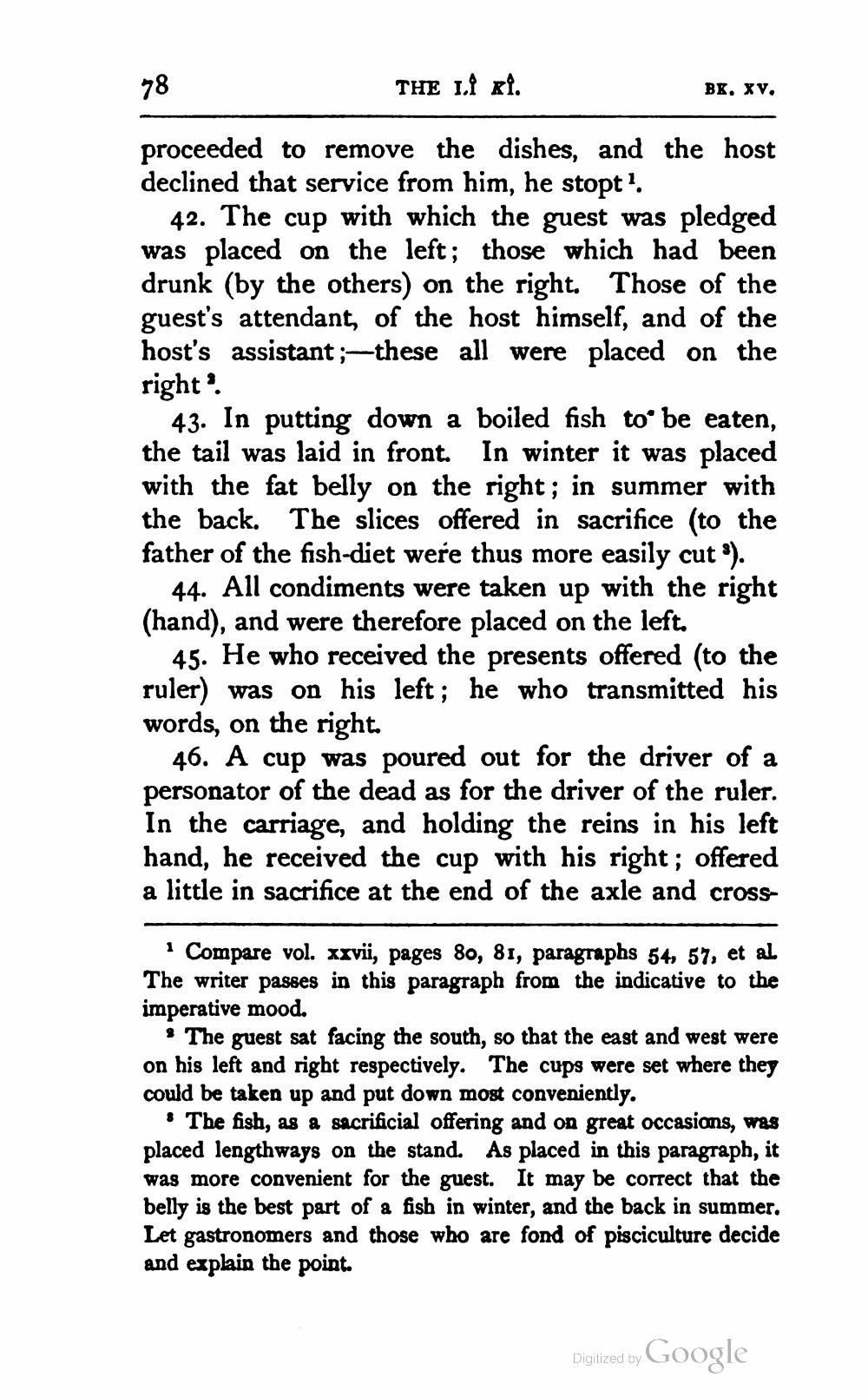________________
78
THE I. KỸ.
BK. XV.
proceeded to remove the dishes, and the host declined that service from him, he stopt?
42. The cup with which the guest was pledged was placed on the left; those which had been drunk (by the others) on the right. Those of the guest's attendant, of the host himself, and of the host's assistant ;-these all were placed on the right
43. In putting down a boiled fish to be eaten, the tail was laid in front. In winter it was placed with the fat belly on the right; in summer with the back. The slices offered in sacrifice (to the father of the fish-diet were thus more easily cut').
44. All condiments were taken up with the right (hand), and were therefore placed on the left.
45. He who received the presents offered to the ruler) was on his left; he who transmitted his words, on the right.
46. A cup was poured out for the driver of a personator of the dead as for the driver of the ruler. In the carriage, and holding the reins in his left hand, he received the cup with his right; offered a little in sacrifice at the end of the axle and cross
-
Compare vol. xxvii, pages 80, 81, paragraphs 54, 57, et al The writer passes in this paragraph from the indicative to the imperative mood.
* The guest sat facing the south, so that the east and west were on his left and right respectively. The cups were set where they could be taken up and put down most conveniently.
• The fish, as a sacrificial offering and on great occasions, was placed lengthways on the stand. As placed in this paragraph, it was more convenient for the guest. It may be correct that the belly is the best part of a fish in winter, and the back in summer. Let gastronomers and those who are fond of pisciculture decide and explain the point.
Digitized by Google




